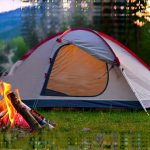Cystitis, a frustrating inflammation of the bladder, can quickly derail an otherwise enjoyable camping or hiking trip. While often associated with urinary tract infections (UTIs), cystitis isn’t always caused by bacteria; it can also stem from irritation due to things like harsh soaps, sensitivity to certain materials, or even prolonged pressure. For outdoor adventurers, the unique challenges presented by limited hygiene facilities, changes in routine, and increased physical activity create a heightened risk of developing this uncomfortable condition. Understanding how to proactively minimize these risks is paramount for ensuring your time in nature remains pleasant and carefree. This article will explore practical strategies to help you prevent cystitis while enjoying the great outdoors, focusing on preparation, hydration, hygiene, and mindful practices.
The discomfort associated with cystitis – frequent urination, a burning sensation, and lower abdominal pain – can be significantly amplified when far from medical assistance. The feeling of needing to constantly find a private (and often primitive) toilet facility in the wilderness adds another layer of stress and can quickly transform an invigorating hike into a miserable experience. Prevention is undoubtedly better than cure, and by adopting preventative measures before you even pack your backpack, you’ll be well-equipped to enjoy your outdoor adventure without interruption. It’s about respecting your body’s needs and anticipating potential issues in an environment that doesn’t readily offer solutions.
Understanding Risk Factors & Preparation
Camping and hiking introduce several factors that can increase the risk of cystitis. Dehydration is a major culprit; when you don’t drink enough water, urine becomes concentrated, creating a more favorable environment for bacterial growth and irritating the bladder lining. Changes in hygiene are another significant factor. Access to regular toilet facilities and proper handwashing stations is limited or non-existent outdoors, increasing exposure to bacteria. Finally, friction from tight clothing or prolonged sitting can contribute to irritation. Proactive preparation addresses these risks head-on.
Before your trip, consider the terrain and climate you’ll be facing. Hot weather necessitates even greater hydration than usual. Plan for ways to ensure access to clean water – carrying enough with you, knowing where reliable sources are along your route (and having a purification method), or packing water purification tablets. Think about your clothing choices too: loose-fitting, breathable fabrics are preferable. Avoid tight hiking pants or underwear that can restrict airflow and potentially cause friction. Finally, pack essential hygiene supplies including antibacterial wipes, hand sanitizer, and toilet paper – even if you plan on using designated backcountry toilets.
It’s also worth considering any personal sensitivities you have. If you know you’re prone to UTIs or have a history of cystitis, discuss preventative measures with your healthcare provider before your trip. They might recommend strategies tailored to your specific needs, such as cranberry supplements (though their effectiveness is debated) or prophylactic antibiotics (only under medical supervision). Preparing mentally and physically for the challenges of outdoor hygiene will significantly reduce your vulnerability to this common ailment.
Staying Hydrated & Maintaining Hygiene in the Outdoors
Adequate hydration is arguably the most crucial element in cystitis prevention. Don’t wait until you feel thirsty to drink; by then, you’re already mildly dehydrated. Aim to sip water consistently throughout the day, even during periods of low activity. A good rule of thumb is to drink at least 2-3 liters of water per day while hiking, and potentially more in hot weather or with strenuous exertion. Consider carrying a hydration pack for easy access to water on the trail.
Maintaining hygiene in the wilderness requires a bit more effort but is essential. Here’s how:
- Always wash your hands thoroughly after using the toilet, even if it’s just a backcountry pit toilet. Hand sanitizer is a useful backup when soap and water aren’t available.
- Practice proper toileting etiquette. Dig catholes at least 6-8 inches deep and 200 feet away from water sources, trails, and campsites. Pack out all toilet paper or burn it completely (where permitted).
- Avoid harsh soaps or perfumed wipes when cleaning yourself. These can irritate the delicate urinary tract area. Plain water is often sufficient.
- Change underwear frequently, especially if you’ve been sweating heavily. Moisture creates a breeding ground for bacteria.
Remember: even seemingly small steps towards better hygiene can make a significant difference in preventing cystitis during your outdoor adventures. Prioritizing cleanliness isn’t just about comfort; it’s about protecting your health and ensuring an enjoyable experience.
Minimizing Friction & Irritation
Friction and irritation are often overlooked contributors to cystitis, especially among hikers and campers. Tight clothing, particularly around the groin area, can create friction that inflames the urethra and bladder. Choose breathable fabrics like moisture-wicking synthetics or cotton (though cotton retains moisture) over restrictive materials. Loose-fitting hiking pants and underwear are ideal.
Consider wearing liner shorts underneath your hiking pants to minimize chafing, especially on longer hikes. Avoid tight-fitting athletic supporters or compression gear for extended periods if you’re prone to irritation. Pay attention to the seams of your clothing – flat seams can reduce friction compared to bulky ones. After prolonged sitting (during breaks or around a campfire), take opportunities to stand up and move around to relieve pressure on the bladder and urethra.
Post-Toilet Routine & Urinary Habits
Your routine immediately after using the toilet is surprisingly important for cystitis prevention. Women, in particular, should always wipe from front to back to avoid introducing bacteria from the rectal area into the urinary tract. Urinating shortly after sexual activity can help flush out any potential bacteria introduced during intercourse – this isn’t just relevant for camping trips, but it’s a good habit to maintain generally.
Avoid holding your urine for extended periods. Frequent urination helps keep the bladder flushed and reduces the risk of bacterial growth. Don’t “just wait” until you find the perfect scenic spot; when you feel the urge, go. Additionally, be mindful of what you consume. Excessive caffeine or alcohol can irritate the bladder and worsen symptoms if cystitis does develop. Prioritize a regular emptying schedule and avoid prolonged retention.
Recognizing Early Symptoms & What to Do
Even with diligent preventative measures, cystitis can sometimes occur. Knowing the early signs is crucial for managing the situation effectively while in the backcountry. Common symptoms include:
- Frequent urge to urinate
- Burning sensation during urination
- Lower abdominal discomfort or pressure
- Cloudy or strong-smelling urine
If you experience these symptoms, increase your fluid intake significantly – aiming for 3-4 liters of water per day. Rest as much as possible and avoid strenuous activity. If the symptoms are mild, they may resolve on their own with increased hydration. However, if the symptoms worsen or persist beyond a couple of days, it’s important to seek medical attention.
Carry a basic first-aid kit that includes pain relievers (like ibuprofen) to manage discomfort. Remember that self-treating is not a substitute for professional medical advice. If you are far from help and concerned about your condition, assess whether evacuation is necessary. Prioritize safety and don’t hesitate to seek assistance if needed. Planning ahead with clear communication regarding your itinerary and potential emergency contacts will prove invaluable in such situations.





















